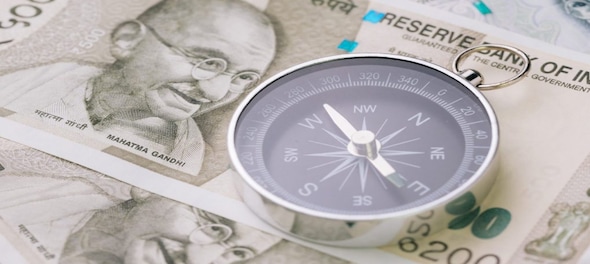
The government on Friday clarified that the International Monetary Fund's case of India's debt touching 100% of the country's Gross Domestic Product (GDP) by financial year 2028 is only a "worse-case scenario and not a fait accompli."
Fait accompli is something that has already happened or been decided before those affected hear about it, leaving them with no option but to accept it.
In a detailed clarification, the government explained that among the various favourable and unfavourable scenarios listed by the IMF like a once-in-a-century Covid-19, the government's debt could by 100% of GDP under adverse shocks by financial year 2028.
The Finance Ministry also highlighted that the debt of both the centre and states has come down since 2021. "General government debt has steeply declined to 81% in financial year 2023 from 88% in financial year 2021," the clarification said, adding that the centre is on track to achieve its stated fiscal consolidation aim of below 4.5% by financial year 2026.
"It is also expected that the combined government debt will decline substantially in the medium-to-long term," the statement said.
India's general government debt is majorly rupee-denominated with external borrowings contributing a minimal amount, a fact that is highlighted in the IMF report.
Domestically issued debt, which is largely in the form of government bonds, is mostly medium or long-term, with a weighted average maturity of nearly 12 years for the central government debt. "Therefore, the rollover risk is low for domestic debt, and the exposure to volatility in exchange rates tends to be on the lower end," the government added.
"The shocks experienced this century by India were global in nature, like the global financial crisis, the taper tantrum, Covid-19 among others," the Finance Ministry said, adding that these shocks uniformly affected the global economy. Therefore, any adverse global shock or extreme event is expected to unidirectionally impact all the economies in an interconnected and globalised world, the ministry said.
(Edited by : Hormaz Fatakia)
Check out our in-depth Market Coverage, Business News & get real-time Stock Market Updates on CNBC-TV18. Also, Watch our channels CNBC-TV18, CNBC Awaaz and CNBC Bajar Live on-the-go!


Lok Sabha Election 2024 — how regional parties are challenging national giants in Phase-4
May 15, 2024 6:17 AM
Supreme Court refuses plea seeking 6-year poll ban on PM
May 14, 2024 7:14 PM
Punjab Lok Sabha elections 2024: A look at BJP candidates
May 14, 2024 7:06 PM
Lok Sabha polls: EC disposes of 90% complaints related to MCC violations
May 14, 2024 4:45 PM

